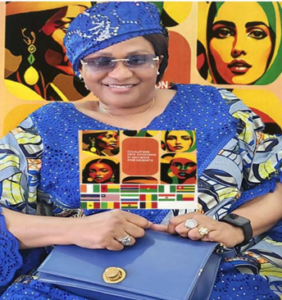In a gathering of unparalleled significance, the wives of current and former African Presidents are setting a powerful precedent in leadership, peacebuilding, and education. Traditionally seen as pillars in the shadows, these first ladies are now stepping into the spotlight to push for a transformative agenda that bridges the gap between past governance and the aspirations of future generations. Their objective is clear: to break the cycle of political vengeance that often plagues outgoing Presidential families and to call for peace, reconciliation, and stability within the governance structures of African nations.
The summit, while honoring the role of these women as quiet, yet profound influencers, goes beyond reflection. The wives of former Presidents are leveraging their position to address a critical need for political maturity. This call for an end to political retribution and a commitment to national unity is a powerful statement against the divisiveness that often defines transitions of power across Africa. Their message to current leaders is a direct appeal to foster stability through a governance framework that encourages inclusivity and the protection of outgoing Presidential Families.
This summit, however, is not just a backward glance at what has been achieved. It is also a forward-looking initiative aimed at shaping future leadership on the African continent. At its core is a commitment to mobilize resources for educational and philanthropic projects, with a focus on empowering the next generation of women. Specifically, these first ladies are advocating for initiatives that train young women in diplomacy, governance, and international relations, thus equipping them with the tools necessary to navigate the complex political landscapes they will inherit.
Mentorship is also at the heart of their agenda. Through personal narratives of resilience and leadership, the first ladies aim to inspire young African women to step into leadership roles. They are determined to create a legacy that moves beyond symbolic gestures, instilling real change by fostering a sense of responsibility and ambition in the continent’s future female leaders. Their stories serve as both motivation and a blueprint for achieving a more peaceful and equitable society, one where young women play an active role in shaping the future.

In calling for this shared legacy, these influential women are not only highlighting their own journeys, but are also setting a high standard of leadership for Africa’s future. Their vision for governance, grounded in peace and stability, is a rallying cry for action, urging current and future generations to strive toward a more unified and prosperous continent.